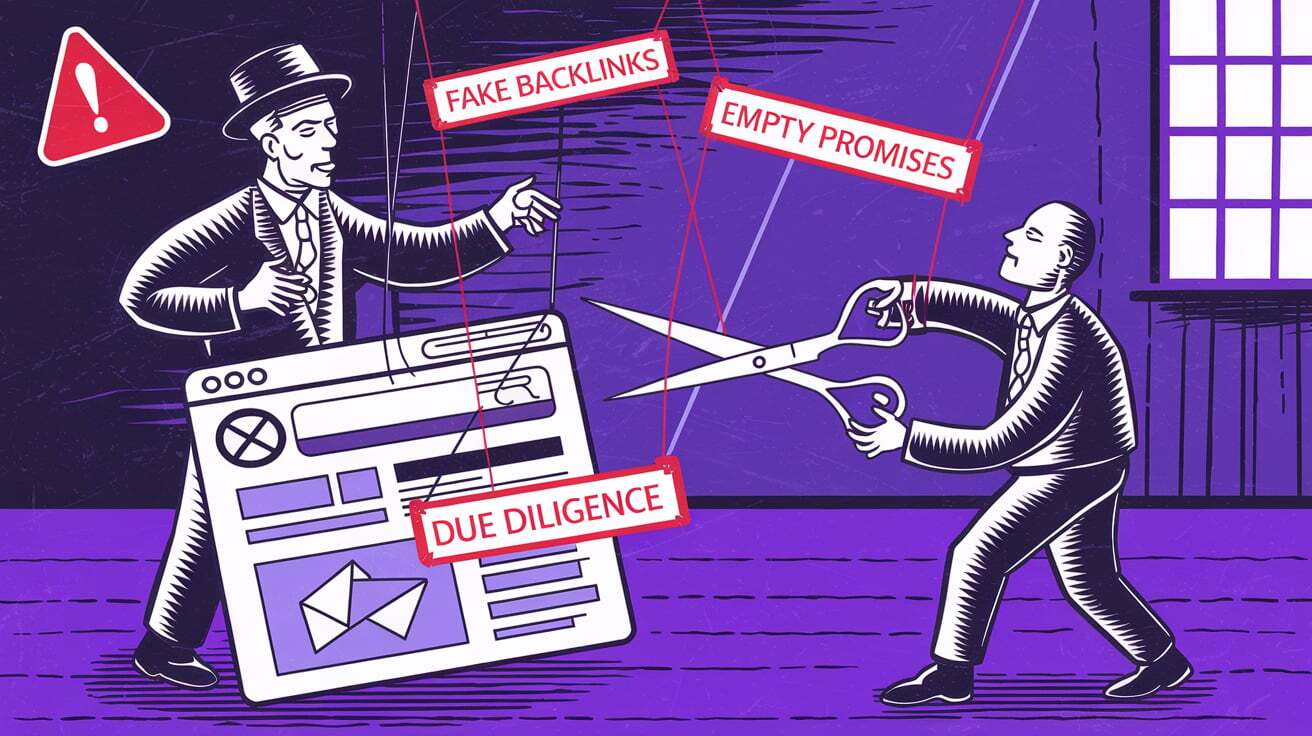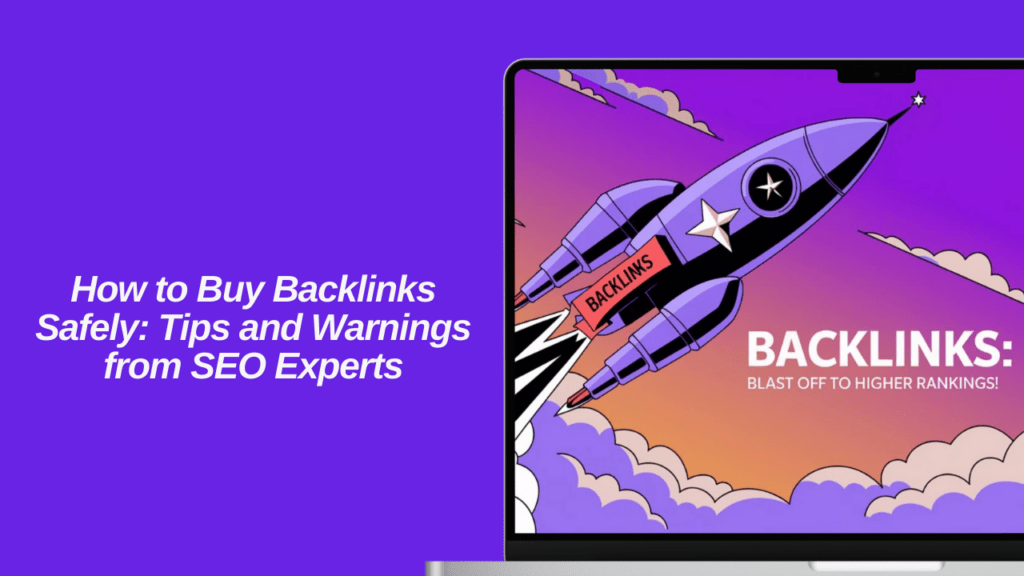If you’re looking to improve your website’s visibility in search results and increase your Click-Through Rate (CTR), it’s time to seriously consider hiring an SEO specialist. With Google’s continuous updates — like removing Breadcrumb Navigation from mobile search results — having an expert who understands these changes and knows how to handle them effectively has become essential.
Whether you aim to boost your CTR using AI tools like Click Rank AI, explore ways to improve Internal Linking and Image SEO, or even need help understanding the difference between Title and H1 Tags, having a specialist by your side will help you build a solid and effective SEO strategy.
Does niche experience matter?
- Some say: Yes, local SEO, e-commerce, and B2B require different strategies.
- Others say: No, good SEOs adapt. If they can rank a law firm, they can rank a SaaS tool.
- Your move: Ask, “How would you approach SEO for my industry?” If they dive into audience research, competitor gaps, or content intent, they’re legit. If they shrug and say “SEO is SEO,” walk away.
Where should I even look for someone?
- Upwork/Fiverr: Cheap, but flooded with scams. Red flag if they push backlinks on day one.
- Better options: Try niche platforms like Credo, LinkedIn, or referrals from business networks.
- Your move: Avoid freelancers who promise “quick wins” or focus only on backlinks.
What’s a realistic budget?
- Scammers: Charge $500/month for generic “packages” (10 articles + 5 backlinks = 🚩)
- Pros: Start at ~$2,500/month. They’ll prioritize technical fixes, keyword research, and content quality.
- Your move: Reject anyone who guarantees rankings. SEO is a marathon, not a sprint.
Spot a Scammer in 5 Seconds (And What to Do Instead)

You don’t need to be an SEO guru to sniff out a scam. Here’s how to weed out the fakes and find someone who actually knows their stuff:
🚩 Red Flags That Scream “Run!”

- “Guaranteed #1 rankings in 3 months!”
SEO isn’t a slot machine. If they promise instant wins, they’re lying. - “Let’s buy backlinks first.”
New site? Backlinks should wait. Focus on content and technical SEO. - Vague answers like “We’ll optimize your site.”
Demand specifics: What pages? Which keywords? How will traffic grow? - Name-drops Fortune 500 clients.
Spoiler: They didn’t work with Microsoft.
✅ Green Flags That Say “Hire Them!”

- Talks about your audience, not just keywords.
“Who’s your ideal customer? What problems do they have?” - Offers a free mini-audit.
A 10-minute site scan for crawl errors or slow pages shows they care. - Admits SEO takes time.
“We’ll track progress monthly, expect traction in 4-6 months.”
🛠️ Your Action Plan
- Ask for a trial project.
Pay for a one-time technical audit or keyword research report. - Google them.
Do they rank for terms like “SEO services” or “best backlink strategies”? - Check their references.
Past clients spill the tea. Ask: “Did traffic convert to sales?”
Contracts, Budgets, and How to Avoid Getting Stuck
You’ve found someone who seems legit, now it’s time to talk money and commitments. Here’s how to protect yourself and your wallet:
The Contract Trap
- Problem: Many SEOs push 6–12 month contracts to lock you in. If results stall, you’re stuck paying for nothing.
- Solution: Start month-to-month. A good specialist will prove their value first. If they insist on long terms, ask:
“What happens if there’s no progress in 3 months?”If they dodge the question, walk away!
Budget Realities for New Sites
- Low end (1,500/month): High scam risk. Expect generic “SEO packages” (e.g., 5 backlinks + 10 articles) that rarely work.
- Mid-range (5,000/month): Typical for specialists who prioritize technical SEO, content strategy, and slow-but-steady growth.
- High end ($10,000+/month): Reserved for competitive industries (e.g., finance, healthcare).
Your move: Ask for a phased approach. Example:
- Month 1: Technical fixes + keyword research ($1,500).
- Month 2: Content creation ($2,000).
- Month 3: Link-building (if needed).
Questions to Ask Before Signing
- “Can I cancel anytime?” (Avoid lock-in clauses.)
- “How do you measure success?” (Traffic? Rankings? Conversions?)
- “What’s your plan if Google updates its algorithm?”
Real-World SEO Scams: Examples and Recovery Steps
You’ve heard the horror stories, now let’s expose the most common SEO scams and how to bounce back if you’ve been duped.
Scam 1: The Backlink Blitz
- How it works: A freelancer charges $500/month to build “high-quality backlinks.” You later discover links from spammy sites (e.g., gambling forums, irrelevant directories).
- Red flags:
- They prioritize link quantity over relevance.
- No content strategy, just “link building.”
- Recovery:
- Use Google’s Disavow Tool to remove toxic backlinks.
- Audit your backlink profile with tools like Ahrefs or SEMrush.
Scam 2: The “Guaranteed #1 Ranking” Trap
- How it works: An agency promises top rankings in 30 days. After payment, they stuff your site with keywords, triggering a Google penalty.
- Red flags:
- Unrealistic timelines (“First page by next month!”).
- No transparency about tactics.
- Recovery:
- Remove keyword-stuffed content.
- Request a manual review from Google Search Console.
Scam 3: Fake Case Studies and Testimonials
- How it works: A specialist claims they boosted traffic for “Microsoft” or “Facebook,” but their case studies lack specifics or proof.
- Red flags:
- Vague results (“Increased traffic by 300%!”) with no screenshots or data.
- Refusal to share client contacts.
- Recovery:
- Reverse-search case study images to check for plagiarism.
- Demand NDAs or contact past clients directly.
Scam 4: The Never-Ending Contract

- How it works: You’re locked into a 12-month contract, but after 6 months, there’s no progress and they blame “Google updates.”
- Red flags:
- Pressure to sign long-term agreements upfront.
- No clear exit clause.
- Recovery:
- Consult a lawyer to review contract terms.
- Document all communication and lack of results.
How to Rebuild After a Scam
1. Start fresh: Remove any spammy content or harmful backlinks and focus on building high-quality content that adds value to your audience.
2. Hire a reputable auditor: The best platform to find trusted SEO experts is through directories like UpCity or Clutch, where professionals are vetted and reviewed.
3. Monitor progress: Use Google Analytics to track your organic traffic and conversions, not just rankings, to ensure your SEO recovery is on the right path.
Final Checklist: How to Hire an SEO Specialist Safely
You’ve learned the red flags, scams, and contract pitfalls—now let’s simplify your hiring process with a step-by-step checklist:
Before Hiring
- Research their reputation:
- Do they rank for terms like “SEO services” or “SEO expert”?
- Check reviews on Google Business Profile, Clutch, or Trustpilot.
- Ask for a free audit:
- A 1–2 page report on your site’s technical issues or content gaps shows competence.
- Interview multiple candidates:
- Compare strategies. Do they focus on your goals, or push generic tactics?
During the Trial Phase
- Start small:
- Pay for a one-time project (e.g., fixing crawl errors, keyword research).
- Track communication:
- Do they explain their work clearly? Avoid jargon-heavy reports.
- Measure early wins:
- Look for improved site speed, resolved technical errors, or better content structure.
After Hiring
- Monthly reports:
- Demand metrics like organic traffic growth, keyword rankings, and conversion rates.
- Stay involved:
- Ask questions: “Why did you prioritize these keywords?” or “How does this backlink help?”
- Exit strategy:
- Ensure you own all content, logins, and assets. Never let them hold your site hostage.
When to Walk Away
- They refuse to share data or access to tools (e.g., Google Search Console).
- Results stall for 3+ months with no explanation.
- They push expensive add-ons (e.g., “You need this $5,000/month AI tool”).
Final Note: SEO isn’t magic—it’s a mix of strategy, patience, and adaptability. A great specialist becomes a partner, not a vendor. Trust your gut: If something feels off, it probably is.
🚀 Work Less, Rank More. Automation Starts at 69!
ClickRank handles your SEO optimization with AI-driven precision, no scams, no guesswork. Boost organic traffic while you focus on growing your business.
👉 Claim Your $69 Deal Now → ClickRank.ai
FAQs About Hiring an SEO Specialist
1. How much does it cost to hire an SEO specialist?
The cost of hiring an SEO specialist varies based on experience, project scope, and location. On average, freelance SEO experts may charge between $500 to $5,000 per month, while agencies can range from $2,000 to $10,000+ per month for comprehensive services. It’s essential to compare prices and services to find the best fit for your business.
2. How to hire an SEO expert?
To hire a qualified SEO expert, start by:
- Defining your SEO goals clearly.
- Researching on trusted platforms like UpCity, Clutch, or LinkedIn.
- Asking for case studies or client references.
- Conducting interviews to assess their understanding of SEO, content strategy, link-building ethics, and technical SEO.
Avoid anyone promising “quick wins” or focusing solely on backlinks.
3. Is it worth it to hire an SEO expert?
Yes, hiring an SEO expert is often worth the investment if your goal is to improve organic traffic, increase CTR, and boost conversions. A good specialist can help you navigate algorithm updates, optimize technical issues, and build long-term search visibility — something DIY efforts often lack.
4. How do SEO scams work?
SEO scams usually target business owners with promises of guaranteed #1 rankings or instant results. Common red flags include:
- Pushing paid backlinks from the first meeting.
- Using black-hat tactics like keyword stuffing or link farms.
- Refusing to explain their methods clearly.
- Offering prices that seem too good to be true.
Always verify credentials and ask for transparent strategies before hiring.



